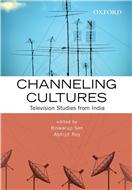ABSTRACT
Satellite TV has been the greatest social development of the past thirty years in India. With over 800 TV channels in 11 languages, the emergence of live TV news significantly changed politics, culture and society. How did this massive transformation unfold? The first part of this essay sketches the early histories of the first Indian private TV networks like Zee, Asianet and NDTV to argue that a unique confluence of technological, political and economic factors in the 1990s drove the transformative process that led to the battering down of the government’s monopoly over television. Satellite television first came to India as the representative of global capitalism and Indian television entrepreneurs initially piggy-backed the foreign networks, often in subordinate positions, because of financial and technological constraints. By the end of the 1990s, however, the growing strength of Indian capitalism after the liberalisation of the Indian economy and the forces of what Thomas Friedman has called ‘Globalisation 3.0’ allowed Indian entrepreneurs to level the playing field.
The Indian state, having embarked on economic liberalisation, was forced to adapt to satellite television as an agent of global capitalism it certainly did not give up control over television easily or voluntarily. It simply lost control. When confronted with change, the centralised Nehruvian state transformed into a multi-layered patchwork state with its overall coherence greatly reduced. Various governmental departments and individuals often acted in opposition to each other, with some whole-heartedly embracing the change, while others fought it tooth and nail and pursued their own interests.
Much like India’s ‘newspaper revolution’ of the 1970s, the availability of privately produced satellite television has meant that people discovered new ways to think about themselves and to participate in politics that would have been unthinkable a generation before. Operating at the junction of public culture, capitalism and globalisation, satellite news networks have had profound implications for the state, politics, democracy and identity formation. Despite all their shortcomings and sensationalism, the emergence of satellite television news networks has enhanced and strengthened deliberative Indian democracy.


